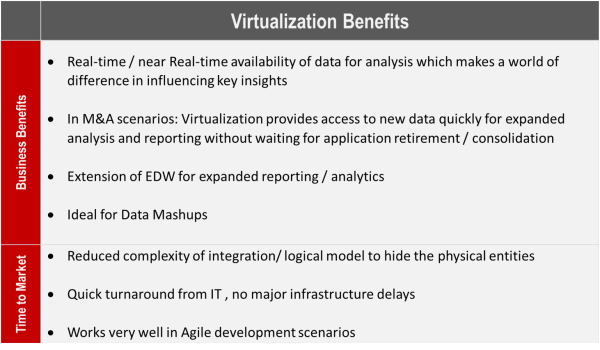The speed in which we receive information from multiple devices and the ever-changing customer interactions providing new ways of customer experience, creates DATA! Any company that knows how to harness the data and produce actionable information is going to make a big difference to their bottom line. So Why Virtualization? The simple answer is Business Agility.
As we build the new information infrastructure and the tools for the modern Enterprise Information Management, one has to adapt and change. In the last 15 years, the Enterprise Data Warehouse has matured to a point with proper ETL framework and Dimension models.
The Future of Big Data
With some guidance, you can craft a data platform that is right for your organization’s needs and gets the most return from your data capital.
With the new ‘Internet of Things’ (IoT) a lot more data is created and consumed from external sources. Cloud applications create data which may not be readily available for analysis. Not having the data for analysis will greatly change the critical insights outcome.
Major Benefits of Virtualization
Additional considerations
- Address performance impact of Virtualization on the underlying Application and the overall refresh delays appropriately
- It is not a replacement for Data Integration (ETL) but it is a quicker way to get data access in a controlled way
- May not include all the Business rules, which implies Data Quality issues, may still be an issue
In conclusion, having the Virtualization tool in the Enterprise Data Management portfolio of products will add more agility in Data Management. However, use Virtualization appropriately to solve the right kind problem and not as a replacement to traditional ETL.

